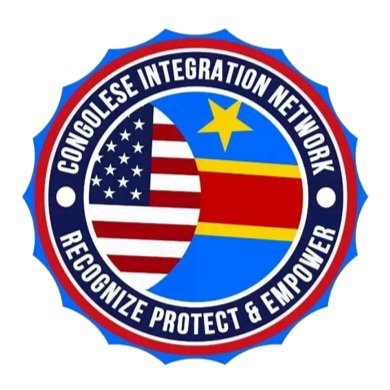Partner Spotlight: Congolese Integration Network of Seattle
Our organization partners with a variety of non-profits and faith organizations that utilize our services to provide additional help to community members they support. These dedicated groups assist people transitioning from homelessness, women rebuilding their lives after surviving domestic violence, and refugees settling into their new homes.
One of these benevolent groups is the Congolese Integration Network of Seattle (CIN). The Democratic Republic of the Congo (DRC) and surrounding regions have been embroiled in war and conflicts going back over two decades. According to the United Nations Refugee Agency, nearly 5.8 million people have been displaced and need emergency assistance due to the ongoing violence. As many of these innocent civilians escape through resettlement programs, thousands of them are relocated to the United States each year, many without extended family here to lean on for help and guidance. The Office of Refugee Resettlement government services are limited, and navigating these complex systems where one may not speak the language or understand the process can be incredibly complicated. Enter the CIN.
Founded in 2016, the CIN provides sanctuary to Congolese refugees and those from other sub-Saharan nations in the greater King County region. Their mission is to welcome and guide newly arriving refugees and immigrants into American society, empowering them through education and health support. The organization is led by fellow Congolese immigrants and refugees who truly understand the unique needs of the community they serve.
Their support services focus on the five primary components supporting a successful transition: housing, transportation, language access, food, and healthcare. Each individual or family has a dedicated case worker who supports each member, from the youngest to the most senior, and of course, these needs vary.
For the youngest of the refugees, their Early Learning Department offers one-on-one at-home education through the age of four to help the children learn English and prepare them for kindergarten. They also assist the parents with understanding the U.S. school system and navigating the steps of registration, as they differ very much from their own experience.
Once in school, the children transfer to the Youth Program which supports them through the age of 25. The assistance provided during these crucial developmental years benefits the entire family. With kids and teens being raised in a very different environment than what their parents experienced, the case managers help promote a positive family connection by helping them understand each other's perspectives. These dedicated individuals also work closely with the children’s teachers, creating a plan of action to keep them on track for graduation alongside their peers. If any teens in their care experience difficulties or setbacks, a mentorship and diversion program aims to keep them focused and stop the school-to-prison pipeline that disproportionately affects Black youths.
For the adults and heads of families, the CIN provides a broad range of support, meeting them where they are, which may sometimes be in a temporary shelter. Case managers assist their clients with housing, food, healthcare, and more as many of them have arrived with virtually nothing to call their own. Translation services help with understanding processes such as rental applications, utility bills, and governmental and medical forms. ESL courses assist those needing to learn or become more fluent in English, and workforce development aids in understanding employee rights and the job application process. Health services include not only physical wellness but also mental health counseling as many have gone through traumatic experiences to get to where they are today.
The current support for CIN comes from federal and state agencies and grants from benevolent foundations. Fundraising efforts are growing to raise additional funding for needs that grants and government funds do not cover. When they can place their clients into housing, most of what they provide covers rental costs and other essentials, but there is little left to cover furniture. The Furniture Repair Bank is happy to supplement their services by providing furnishings, making their new space feel more like a home.
If you would like to help or learn more about the Congolese Integration Network, please visit their website or follow them on Facebook for updates. Support is appreciated through a variety of methods:
“This relationship will be a lifesaver to many people we serve.”
Clothing, food, and toy donations (drop offs by appointment)
Financial donations are always needed and appreciated!
Volunteer your time!
Donate furniture through FRB
See you at Furniture Repair Bank!
Follow us!
Subscribe to our newsletter to stay up to date!





